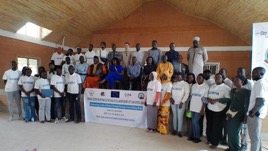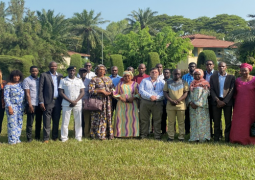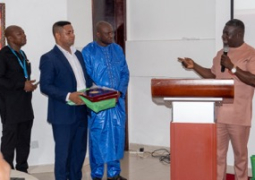
Over thirty youths were selected for the first phase of this vital training, a part of the Ostend Banjul City Link EU-sponsored project designed to prepare participants in their respective functions as tour guides in the city of Banjul.
Declaring the training open, Chief Executive Officer (CEO) of Banjul City Council, Modou Jonga on behalf of the Mayor Rohey Malick Lowe of Banjul, described the training as ‘timely and very important intervention’, maintaining that it is a fulfillment of the aspirations of the NCAC and BCC.
BCC CEO commended the Ostend Banjul City Link EU-funded project team for the initiative, while urging participants to see themselves as a reflection of the value city of Banjul.
"You are our ambassador, so make the best use of the training to create employment opportunities not only for yourself but for all the actors within the city."
For his part, Hassoum Ceesay, Director General of the National Centre for Arts and Culture (NCAC), underscored the importance of the training, recalling that few months ago the NCAC completed the Banjul Heritage Inventory Project with UNESCO.
"During the inventory, the team went around the city of Banjul with the councilors and the support of the BCC to go to all the heritage sites in the city, and what next now is to protect them and interpret them."
DG Ceesay assured similar training in the future ahead of the tourism winter season so as to prepare them adequately for the task, while making them understand that the tour guides training is part and parcel of both institutions’ plans to improve the skills of the youth in the city.
Governor Ebrima Jawo, Executive Coordinator of the Banjul City, while applauding organisers for the training, acknowledged that Banjul is a cultural home and has always been a tourism destination.
"We have a lot to offer to every visitor that comes to visit this city because it is a tourist attraction city."
Mamat Sallah, Deputy Director of Monument revealed that after the successful completion of the training, they will have an information office in Crab Island where visitors can get more information about the city and will be attached to the NCAC to help prepare them practically for the task.
Ousman Jobe, EU Project Coordinator advised participants to continue studying the history of Banjul without limiting their knowledge to only what they were taught during the period of the training.




